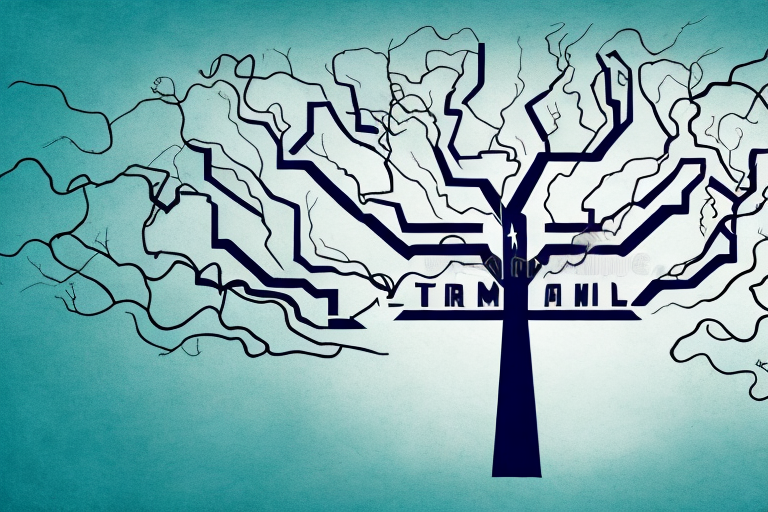Family law plays a significant role in shaping and regulating relations within the domestic sphere. It encompasses a wide range of legal aspects that pertain to marriage, divorce, child custody, adoption, and more. This article will delve into the depths of family law, exploring its evolution, key aspects, and its impact on various family dynamics. Additionally, we will explore real-life case studies that demonstrate the practical implications of family law. Lastly, we will touch upon emerging trends and potential future changes that might shape the landscape of family law.
Defining Family Law: An Overview
Family law, as the name suggests, refers to the legal framework that governs matters relating to families and domestic relations. It encompasses a broad spectrum of legal regulations and procedures designed to handle various family-related issues. From marriage and divorce to child custody and support, family lawyers Melbourne plays a crucial role in establishing and maintaining the rights and responsibilities of individuals within a family unit.
The Evolution of Family Law
The roots of family law can be traced back to ancient civilizations, where regulations regarding marriage, divorce, and property rights were established. In ancient Mesopotamia, for example, family law was primarily concerned with preserving the integrity of the family unit and ensuring the orderly transfer of property from one generation to the next.
Over time, family law has seen significant developments and adaptations to reflect changing societal norms and values. During the Middle Ages, for instance, family law in Europe was heavily influenced by religious beliefs, with marriage considered a sacrament and divorce being highly discouraged. However, as the Renaissance brought about a shift in thinking and the Enlightenment emphasized individual rights, family law began to evolve to accommodate these changing perspectives.

During the 19th and 20th centuries, family law underwent further transformations, particularly in response to the rise of industrialization and urbanization. As societies became more diverse and complex, family law expanded to address issues such as child labor, domestic violence, and the protection of women’s rights.
Today, family law is a complex and comprehensive body of legislation that governs not only traditional nuclear families but also non-traditional family forms such as single-parent households, blended families, and same-sex unions. It continues to evolve to keep pace with the ever-changing needs and dynamics of individuals and communities.
Key Aspects of Family Law
Family law covers various areas, each with its own set of rules and regulations. Understanding these aspects is crucial to comprehending the wide-ranging impact of family law on domestic relations.
Marriage and Divorce Regulations
Family law provides the legal framework for marriage, including requirements for entering into a valid marriage, such as age and consent. It also governs the process of divorce, including grounds for divorce, property division, alimony, and spousal support.
Child Custody and Support
Family law addresses the custody and support of children in cases of separation or divorce. It establishes guidelines for determining custody arrangements, visitation rights, and child support payments, with the best interests of the child being the primary consideration.
Adoption
Family law governs the process of adoption, ensuring that prospective parents meet certain criteria and that the adoption is in the best interests of the child. It establishes legal rights and responsibilities for both adoptive parents and adopted children.
Guardianship
Family law also covers guardianship, which is the legal relationship between a guardian and a ward. It provides a framework for appointing guardians for minors or adults who are unable to care for themselves due to physical or mental incapacity.
In addition to these key aspects, family law also addresses issues such as domestic violence, child abuse, paternity disputes, and reproductive rights. It is a dynamic field of law that continues to adapt and respond to the changing needs and complexities of modern family structures.
The Role of Family Law in Domestic Relations
Family law serves as a guiding framework in maintaining and defining relationships within the domestic sphere. It sets forth legal guidelines and procedures that help individuals navigate through important life events such as marriage, divorce, and adoption.
Family law is a multifaceted area of law that encompasses various aspects of domestic relations. It provides a comprehensive legal framework that ensures fairness, equity, and protection for individuals and families involved in these significant life events.
Marriage and Divorce Regulations
One of the primary aspects of family law pertains to marriage and divorce. Family law governs the legal requirements for getting married, including age restrictions, marriage licenses, and prenuptial agreements.
Marriage is a union between two individuals, and family law ensures that the process of getting married is conducted in a legally recognized manner. It sets out the necessary steps and documentation required to validate a marriage, providing a solid foundation for the couple’s legal rights and responsibilities.
Similarly, divorce regulations outline the legal procedures and considerations involved in dissolving a marriage. Family law addresses important issues such as spousal support, asset division, and child custody, providing a structured approach to the often emotionally charged process of divorce.
By establishing clear guidelines for these significant life events, family law helps protect the rights and interests of individuals within the domestic sphere, ensuring fairness and equity in the process.

Child Custody and Support Issues
Child custody and support issues are some of the most sensitive and crucial aspects of family law. When parents separate or undergo divorce, family law steps in to determine custody arrangements, visitation rights, and child support obligations.
The well-being and best interests of the child are paramount in family law. The legal system aims to create a nurturing and stable environment for children, regardless of their parents’ relationship status. Family law strives to strike a balance between the rights and responsibilities of both parents, ensuring that children have the opportunity to maintain a meaningful relationship with both parents.
Family law recognizes that children are the most vulnerable individuals in domestic relations, and it seeks to protect their physical, emotional, and psychological well-being. Through custody and support regulations, family law provides a framework that promotes the child’s welfare and ensures their needs are met.
Adoption and Guardianship
Family law also plays a vital role in facilitating adoption and guardianship processes. Adoption regulations outline the legal requirements and procedures involved in adopting a child, ensuring that the prospective adoptive parents meet certain criteria and that the child’s well-being is prioritized throughout the process.
Adoption is a complex and life-changing event, and family law provides the necessary legal structure to safeguard the rights and interests of all parties involved. It ensures that the adoption process is conducted ethically, transparently, and in the best interests of the child.
Similarly, guardianship regulations establish the legal framework for individuals to assume responsibility for a child who is not biologically related to them. In cases where a child’s parents are unable to fulfill their parental duties, family law provides a mechanism to protect the child’s well-being by assigning a guardian who can provide care, support, and guidance.
Family law recognizes the importance of stability and a nurturing environment for children, regardless of their biological connections. It aims to ensure that children have the opportunity to grow and thrive in a loving and supportive family, whether through adoption or guardianship.
The Impact of Family Law on Family Dynamics
Family law has far-reaching implications on various aspects of family dynamics, influencing the nature and quality of relationships within the domestic sphere.
How Family Law Influences Parent-Child Relationships
Family law plays a crucial role in shaping parent-child relationships, particularly in cases of divorce or separation. By establishing custody arrangements and visitation rights, family law ensures that both parents have the opportunity to maintain a meaningful relationship with their child.
Additionally, family law dictates child support obligations, ensuring that the financial well-being of the child is adequately provided for and that both parents contribute to their upbringing. Learn more about Key Issues and Resolutions in Family Law.

The Effect of Family Law on Marital Relationships
Family law not only regulates the dissolution of marriages but also seeks to preserve and strengthen marital relationships whenever possible. Couples undergoing marital difficulties may seek mediation or counseling to reconcile their differences, with family law providing the necessary framework to support such efforts.
Furthermore, family law often promotes alternative dispute resolution methods, such as collaborative divorce or arbitration, to minimize the emotional and financial toll that traditional divorce proceedings can have on families.
Case Studies: Family Law and Domestic Relations
Examining real-life case studies can provide valuable insights into the practical implications of family law on domestic relations. Two illustrative examples highlight the impact of family law on different scenarios within the domestic sphere.
Case Study 1: Divorce and Child Custody
Mary and John, a married couple, decide to divorce after years of struggling with their relationship. Family law comes into play to determine the custody of their two children, Emily and David. After careful consideration of the children’s best interests, the court grants joint physical custody, allowing both Mary and John to spend equal time with the children. Additionally, family law mandates child support payments from John to Mary, ensuring that the children’s financial needs are met.
Case Study 2: Adoption and Guardianship
Sarah, a single mother, agrees to become the legal guardian of her sister’s child, Emma, after her sister’s sudden passing. Through the legal provisions established by family law, Sarah is able to assume guardianship of Emma, granting her the authority and responsibility to make decisions regarding the child’s well-being. The process involves various legal steps, including background checks, home visits, and approval from the relevant authorities.
The Future of Family Law and Domestic Relations
Family law is a dynamic field that continually evolves to adapt to changing societal norms and needs. Understanding emerging trends and potential future changes can shed light on the direction in which family law is headed.
Emerging Trends in Family Law
One emerging trend in family law is the increasing recognition and legal protection for non-traditional family forms, such as same-sex unions and single-parent households. As societal attitudes continue to evolve, family law is adapting to ensure equal rights and protections for individuals in these family structures.
Another emerging trend is the growing emphasis on alternative dispute resolution methods in family law proceedings. Collaborative divorce, mediation, and arbitration are increasingly being encouraged to promote amicable resolutions and reduce the adversarial nature of traditional litigation.
The Potential Impact of Future Legal Changes
As society evolves, family law may face future legal changes that reflect shifting attitudes and needs. These changes could include modifications in areas such as spousal support, parenting arrangements, or the recognition of new family forms.
Technology advancements may also have an impact on family law, particularly in areas such as reproductive technologies, paternity testing, and digital privacy within familial relationships. The ever-evolving landscape of family law ensures that it remains responsive to the needs and challenges faced by individuals and families in the modern world.
In conclusion, understanding the impact of family law on domestic relations is essential to grasp the legal framework that governs various aspects of family life. From marriage and divorce regulations to child custody and support, family law plays a vital role in establishing rights and responsibilities within the domestic sphere. By examining case studies and exploring emerging trends, we can gain insights into the practical implications of family law and anticipate future changes that may shape the landscape of domestic relations.

